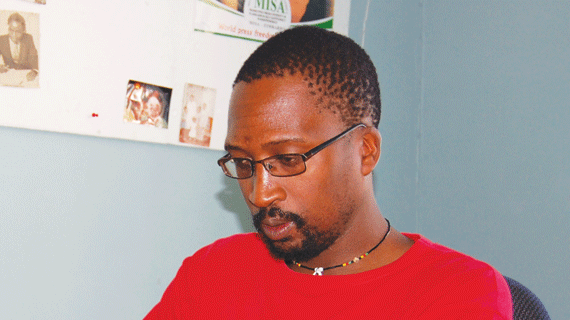
RECENT media reports on the salaries of individuals working in State related corporations and public services have brought issues of public accountability, transparency and corruption to the fore.
Opinions have ranged from complete disgust at the levels of decadent opulence to general politicisation of the matter.
This latter point in relation to Zanu PF factions slugging it out in the media in a tit for tat battle at damaging personal but faction related exposes. Even if rather muted but all the same remaining a staple of the contemporary national political rumour mill.
In some instances, the shock at such profligacy has come from new or recently reappointed cabinet ministers. When explaining themselves in Parliament they have sought to distance themselves from the scandalous remuneration figures and promised to deal with the matters with the requisite seriousness.
Some of the ministers have taken on a ‘crusader’ role in the matter. They have issued ultimatums and statements of intent for media consumption with limited little changing in reality.
The bigger issues, however, remain how these shocking revelations are indicative of an exposure of our society’s elite and corrupt underbelly. And the probable truth that all the special utility vehicles, humongous houses in the leafy environs of Glen Lorne, Borrowdale Brooke or Chishawasha Hills, are not necessarily premised on honest hard work. In all of the matters being reported, the central player has been the state and its resources. Be it at local, national or public-private partnership levels.
What this points to is a culture of the use of the state/government to acquire wealth beyond reason and with shocking impunity. The problem therefore ceases to be just about dishonest individuals or their particular factions in Zanu PF. It takes on the character of a state that steals from its own people.
How else can one explain the fact that individuals entrusted to serve the public good end up benefitting beyond measure from the same?
- Chamisa under fire over US$120K donation
- Mavhunga puts DeMbare into Chibuku quarterfinals
- Pension funds bet on Cabora Bassa oilfields
- Councils defy govt fire tender directive
Keep Reading
The elephant in the room, however, is not the amount of money that is being paid to individuals in the public or commercialised state sectors. Instead it is how the state all along turned a blind eye to such profligacy. And only to have these issues emerging in the heat of Zanu PF factionalism.
There is no way the government did not know of these salaries and benefits. Even where there has been action that includes suspension from office of individuals concerned the reality of the matter is that public office has unfortunately become a place where one can get rich quickly. And this at unexplainable levels.
What it all eventually comes to mean is that we have a state within the state. Or that our country is living two political and economic realities. One in which those few that are directly connected to higher echelons of state office live in phenomenal luxury. While the majority that are materially cajoled to cast votes live in a poverty only alleviated by the latter’s benevolence.
Hence there are occasions of rather odd philanthropy, such as the personal sponsoring of the national football team (and even team fans) when essentially it should be largely paying for itself.
Or alternatively shockingly high donations during election campaigns that when analysed further are indicative of literal vote buying than seeking public office on the basis of leadership merit.
What is then observable is that we have a political economy that has gone off its hinges. Not only due to individual corruption but more to do with a state that rewards the mediocre for political loyalty.
And this is where the rub is. Ever since the adoption of what we have referred to as public private partnerships and the wholesale adoption of the commercialisation of public corporations, public accountability has become murkier. The motive of making profit has been reduced largely to monetary terms and not service provision.
And the monetary terms of reference have been limited to how much these chief executives earn as opposed to how much is actually contributed to the betterment of the infrastructure or systems that improve an actual public service. Hence for example the debate over the PSMAS still revolves solely around what individuals acquired as opposed to the dilapidated public health service that the country has been experiencing in shocking decline over the last twenty years.
These developments are however a combination of both the public and private sectors of the national economy. Especially where and when there has been an interaction of what are deemed best practices in corporations that are primarily motivated by a pursuit of monetary profit.
To use the same model for public service related endeavours has unfortunately ended up with heads of public corporations wrongly assuming they are in similar situations to their private sector colleagues. That is to say, assuming a profit sharing framework even where there is none.
As it is, there will no doubt be more ‘revelations’. Some of which will appear like politicised vendetta, but will however be in the public interest. The bigger question is how to remedy these symptoms of a state that has become an arena for self aggrandisement .
And unfortunately, as with everything else, it is the politics of it that will triumph with loyalties bring traded off until such a time a ceasefire is reached. Then is probably back to state-business unusual.
Takura Zhangazha writes in his personal capacity Please ask for permission to use this article by e-mailing [email protected]










